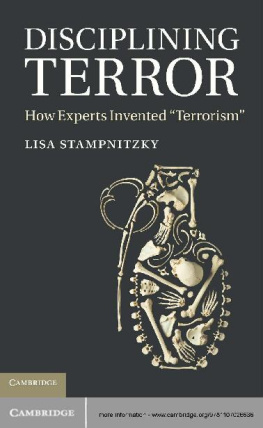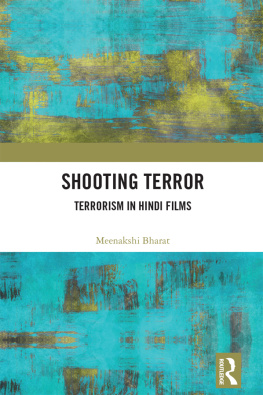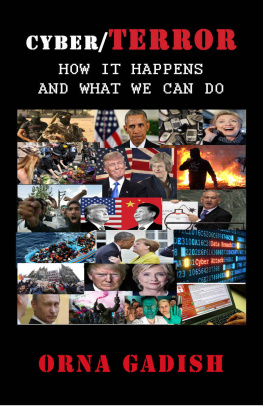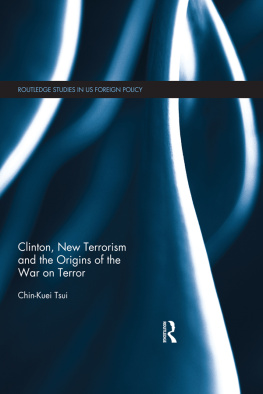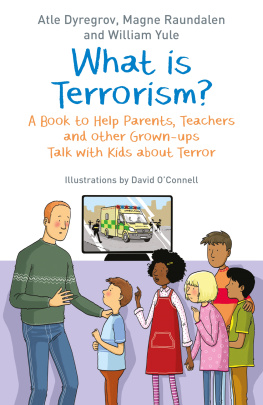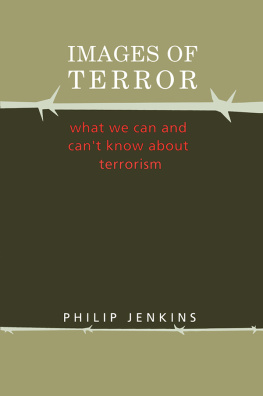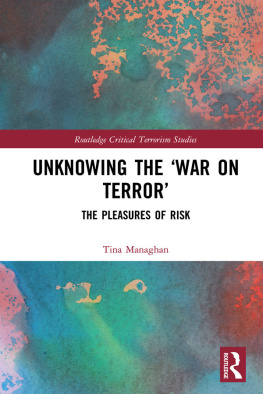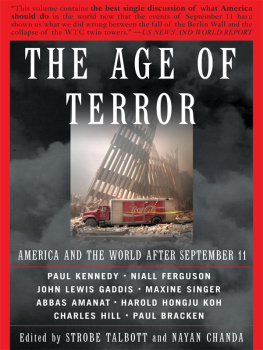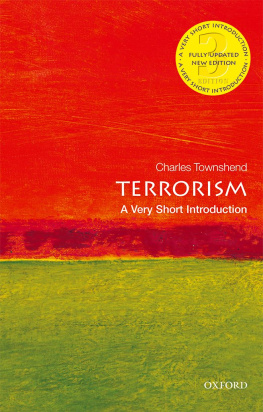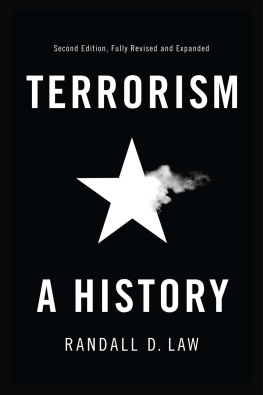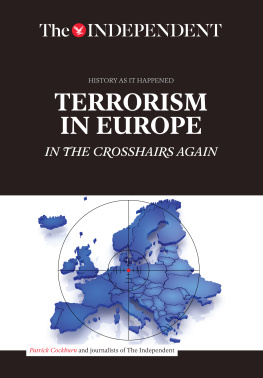Disciplining Terror
Since 9/11 we have been told that terrorists are pathological evildoers, beyond our comprehension. Before the 1970s, however, hijackings, assassinations, and other acts we now call terrorism were considered the work of rational strategic actors. Disciplining Terror examines how political violence became terrorism, and how this transformation ultimately led to the current war on terror. Drawing upon archival research and interviews with terrorism experts, Lisa Stampnitzky traces the political and academic struggles through which experts made terrorism, and terrorism made experts. She argues that the expert discourse on terrorism operates at the boundary itself increasingly contested between science and politics, and between academic expertise and the state. Despite terrorism now being central to contemporary political discourse, there have been few empirical studies of terrorism experts. This book investigates how the concept of terrorism has been developed and used over recent decades.
LISA STAMPNITZKY is Lecturer on Social Studies at Harvard University. She earned her PhD in sociology at the University of California, Berkeley, and has also held fellowships at Harvard, Oxford, Ohio State, and the European University Institute.
CAMBRIDGE UNIVERSITY PRESS
Cambridge, New York, Melbourne, Madrid, Cape Town, Singapore, So Paulo, Delhi, Mexico City
Cambridge University Press
The Edinburgh Building, Cambridge CB2 8RU, UK
Published in the United States of America by Cambridge University Press, New York
www.cambridge.org
Information on this title: www.cambridge.org/9781107026636
Lisa Stampnitzky 2013
This publication is in copyright. Subject to statutory exception and to the provisions of relevant collective licensing agreements, no reproduction of any part may take place without the written permission of Cambridge University Press.
First published 2013
Printed and bound in the United Kingdom by the MPG Books Group
A catalogue record for this publication is available from the British Library
Library of Congress Cataloguing in Publication data
Stampnitzky, Lisa.
Disciplining terror : how experts invented terrorism / Lisa Stampnitzky.
pages cm.
Includes bibliographical references.
ISBN 978-1-107-02663-6 (Hardback)
1. Terrorism. 2. TerrorismStudy and teachingHistory.
3. TerrorismResearchHistory. I. Title.
HV6431.S69 2013
363.325dc23
2012044908
ISBN 978-1-107-02663-6 Hardback
Cambridge University Press has no responsibility for the persistence or accuracy of URLs for external or third-party internet websites referred to in this publication, and does not guarantee that any content on such websites is, or will remain, accurate or appropriate.
This book is dedicated to the memory of my father, Michael Stampnitzky.
Acknowledgments
As sociologists, and particularly as sociologists of knowledge, we know that intellectual work is not produced by the author alone but through connections with others. This book began as a PhD dissertation at Berkeley, where I was blessed with an extraordinary set of advisors. Ann Swidler had faith in this project from the very beginning, and her influence is present at every level, from the theoretical to the grammatical. Raka Ray has been a supportive and challenging advisor, and a model as both scholar and teacher. Jonathan Simon was a sharp reader and provided insightful commentary. Gil Eyal first steered me towards the study of experts as I was searching for a sociological entry point to the events of 9/11, and his generosity in remaining actively engaged with this project, even after leaving Berkeley, and his incisive comments have left an indelible imprint upon the manuscript. In addition, I had four excellent research assistants in Marisa Broudy, Christina Dawber, Evan Denerstein, and Shabnam Tai, who provided invaluable assistance with data entry and other tasks. As I completed the dissertation, from 2006 to 2008, I was welcomed as a visiting fellow at the Stanford University Center for International Security and Cooperation, where the faculty and fellows not only provided a crash course in security studies and international relations but were unfailingly interested in my work and willing to share their own research. Lynn Eden in particular has been a true mentor, providing incisive commentary, challenging questions, and secure faith in my work.
I am particularly indebted to the other institutions that have supported me and provided temporary intellectual and physical homes as this project took shape in its transition from dissertation to book, including the Robert Schuman Centre at the European University Institute, the Mershon Center for International Security Studies at The Ohio State University, the Institute for Science Innovation and Society at the University of Oxford, and the Charles Warren Center for Studies in American History at Harvard University. Colleagues at all these institutions, particularly Idalina Baptista, Will Davies, Sarah DeLange, Nadia Fadil, Stephanie Hofmann, Andy Jewett, Javier Lezaun, Gail McElroy, Linsey McGoey, John Mueller, Steve Rayner, Julie Reuben, Mark Solovey, Pascal Vennesson, and Jessica Wang, provided friendship, support, and advice; and staff people at each of these institutions, particularly Elsa Tranter, Linda Flory, Carmen Privat-Gilman, and Belinda White at Berkeley and Larissa Kennedy and Arthur Patton-Hock at Harvard, helped smooth the process.
Parts of this project were presented, and helpful commentary was received, at workshops and conferences at the University of Copenhagen, Kings College London, the University of Cambridge, the American Sociological Association, the International Sociological Association, and the Society for Social Studies of Science. This project also benefited from discussion with many others along the way, including Tarak Barkawi, Rina Bliss, Christian Bueger, Stephen Collier, John R. Hall, Richard Jackson, Jerry Karabel, Monika Krause, Richard Lachmann, Andrew Lakoff, Luis Lobo-Guerrero, Jon Norman, Charles Perrow, Rebecca Slayton, Meg Stalcup, and Trine Villumsen. I am also indebted to Carrie Parkinson and John Haslam at Cambridge University Press, as well as to several anonymous reviewers, who provided insightful feedback and advice. My lovely and amazing dissertation group Elizabeth Popp Berman, Hwa-Jen Liu, Teresa Sharpe, and Youyenn Teo provided support both personal and intellectual, and Gretchen Purser and Greggor Mattson provided encouragement and timely feedback on the entire manuscript.
A number of organizations graciously allowed me to attend events and speak to their staff and researchers, and otherwise assisted with this project. I attended conferences at the START Center at the University of Maryland, at the John Jay College Center on Terrorism, and at the Institute on Global Conflict and Cooperation at the University of California, San Diego. Lt. Colonel Joe Felter and colleagues from the Combating Terrorism Center at West Point spoke with me on several occasions about their ongoing projects. Karen Colvard shared the history of the Harry Frank Guggenheim Foundations work on terrorism, and provided a number of reports from their library. The staff at the University of California, Berkeley, interlibrary loan office reliably sought out my often peculiar requests. Archivists at the Library of Congress and the Hoover Institution archives provided assistance on my visits there. At RAND, Vivian Arterbery and Ann Horn guided me through the archives, while Karen Treverton shared insights into the history of the RAND terrorism database. Financial support was provided by the National Science Foundation (Doctoral Dissertation Improvement Grant no. SES-0526144), the University of California Institute on Global Conflict and Cooperation, the Charlotte W. Newcombe Foundation, and the University of California, Berkeley, Graduate Division and Department of Sociology.


